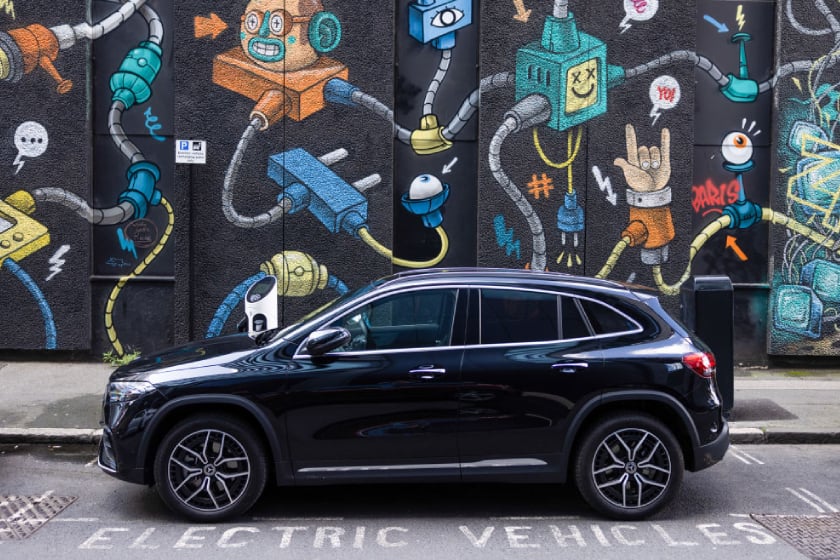£100 million money laundering conviction: Lessons for accountants
In 2022, Emirati national Abdulla Alfalasi was jailed for nine years, following a conviction for leading the biggest...
READ MORE
The obvious damage from Prime Minister Rishi Sunak’s five-year delay of the ban on the sale of internal combustion engine cars is environmental. But experts warn it doesn’t stop there – consumers and the automotive industry will both feel the impact.

The most interesting reactions, when Prime Minister Rishi Sunak announced that the ban on the sale of new internal combustion engine (ICE) cars would be pushed back from 2030 to 2035, was that of the general driving public. After all, the reversal of the decision was explained as easing the financial burden on drivers. But drivers felt otherwise.
The Guardian, covering the reactions of people in the street, said the majority of drivers were upset by the announcement.
Why? Because it makes decision-making difficult when it comes to buying a new car in the next five to 10 years. Because it will further delay the second-hand market for electric vehicles (EV). And because it will likely delay the installation of chargers in rural areas and apartment buildings.
“Many consumers said they will now not make the immediate decision to transition to a battery electric vehicle,” Nothard says.
“They’re concerned with the cost of buying one and what it might be worth in three or four years, and they’re concerned about charging infrastructure.”
The real power of the 2030 deadline was the fact that it encouraged a much faster transition out of the valley we find ourselves in right now, between the ICE era and the EV era. That transition will eventually occur and charging infrastructure will be created to meet demand, but it’s now likely to be a slower and less certain transition.
In the period between 2030 and 2035, Nothard says, it’s likely that ICE vehicles will cost more than EVs, which also won’t help drivers.
“You have to look at the global manufacture level. Vauxhall is going to be full battery electric by 2028. Volvo will be full battery electric by 2025. Other manufacturers are going the same way because they can’t afford to build petrol, diesel, hybrid and battery electric – it’s just inefficient,” he says.
“Let’s not forget that the UK represents just shy of 3% of global new car sales, and manufacturers are focused on the global picture, not the local one. So, while UK motorists may still be able to buy a new ICE vehicle beyond 2030, they will find a limited choice and prices that, thanks to the laws of supply and demand, will likely exceed those of hybrid and battery electric vehicles.”
The announcement was light on information about the zero emissions vehicle (ZEV) mandate. The mandate requires manufacturers to ensure a specific proportion of their vehicle sales each year is EVs, starting in 2024.
From January 2024, 22% of cars and 10% of vans sold by manufacturers must be zero-emissions vehicles. By 2030 that car percentage will be 80% and vans 70%, matching Nothard’s prediction that new ICE vehicles will be the rarer, and likely more expensive, purchase.

“That mandate still exists,” he says. “They have just softened the back-end of it, saying only 20% of cars registered after 2030 can be non-battery electric.”
The problem is that these new figures could be out of alignment with the plans of major manufacturers, and the UK is only a very small market on a global scale.
“If the UK becomes too challenging, too difficult, with too much red tape, manufacturers will just go elsewhere. That’s what we’ve got to be very careful of. Eighty per cent of our registrations every year are imports, so certainty between the UK and especially Europe is vital,” Nothard says.
“What Sunak has done is demonstrate to the global investment market and the manufacturers that we will change strategies depending on political agendas. That doesn’t help with investment clarity and strategic certainty.”
In a statement released after the Prime Minister’s announcement, Mike Hawes, Chief Executive of SMMT, a body that represents UK car makers, said flip-flopping will only create confusion and anxiety.
“The automotive industry has and continues to invest billions in new electric vehicles as the decarbonisation of road transport is essential if net zero is to be delivered,” Hawes said.
“Government has played a key part in bringing some of that investment to the UK … To make this a reality, however, consumers must want to make the switch, which requires from government a clear, consistent message, attractive incentives and charging infrastructure that gives confidence rather than anxiety. Confusion and uncertainty will only hold them back.”
Lisa Brankin, Chair of Ford UK, said, “Our business needs three things from the UK government: ambition, commitment and consistency. A relaxation of 2030 would undermine all three.”
Nothard agrees.
“What’s now vital is that the government sticks to its pledges and does not move any other goalposts. The automotive sector and consumers need clarity and certainty,” he says.
“The government must not lose sight of the now urgent requirements for significant investment in EV infrastructure and incentives to support private buyers with the transition to new and used electric vehicles. Otherwise, in five years’ time, we risk being in the same position we face today.”